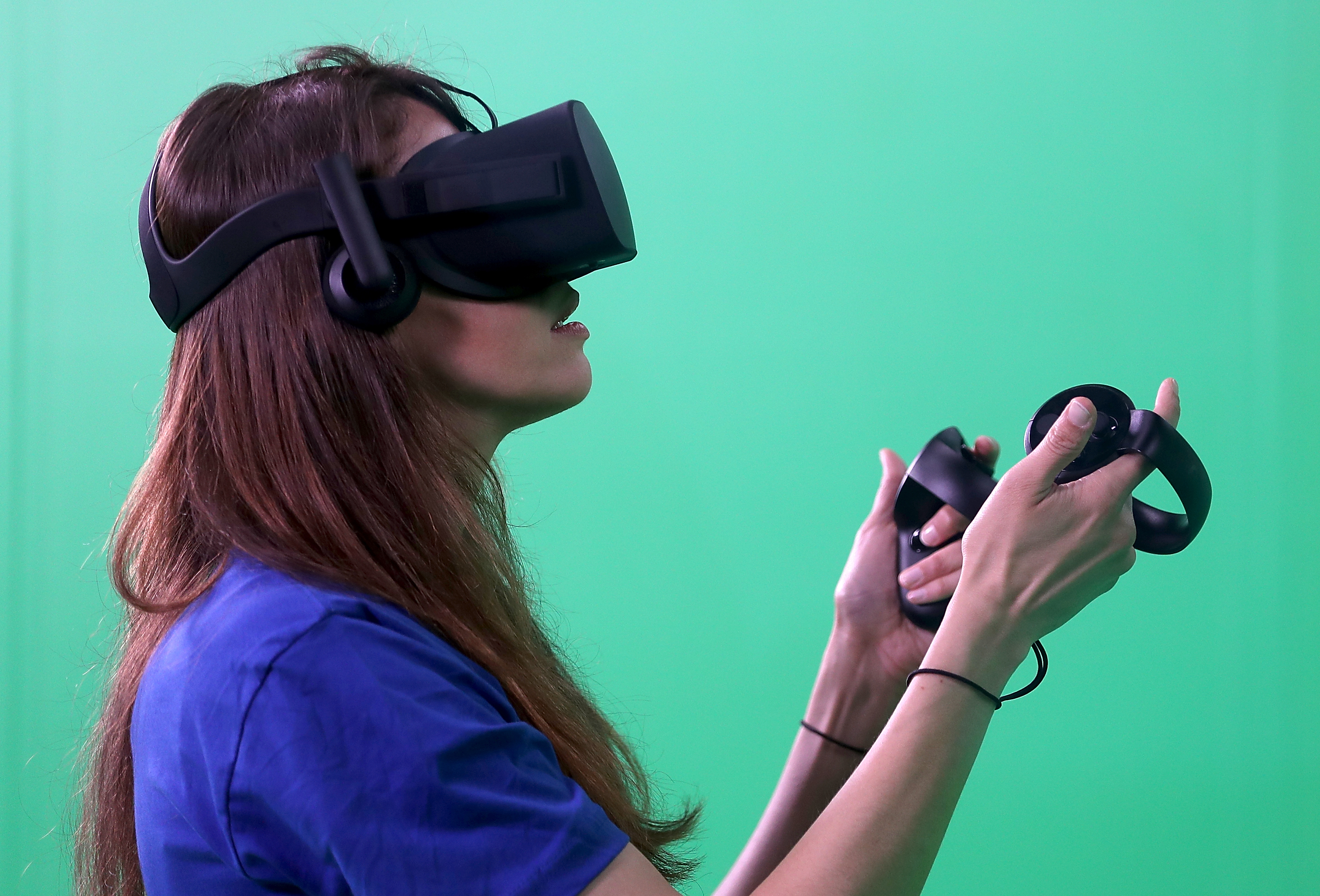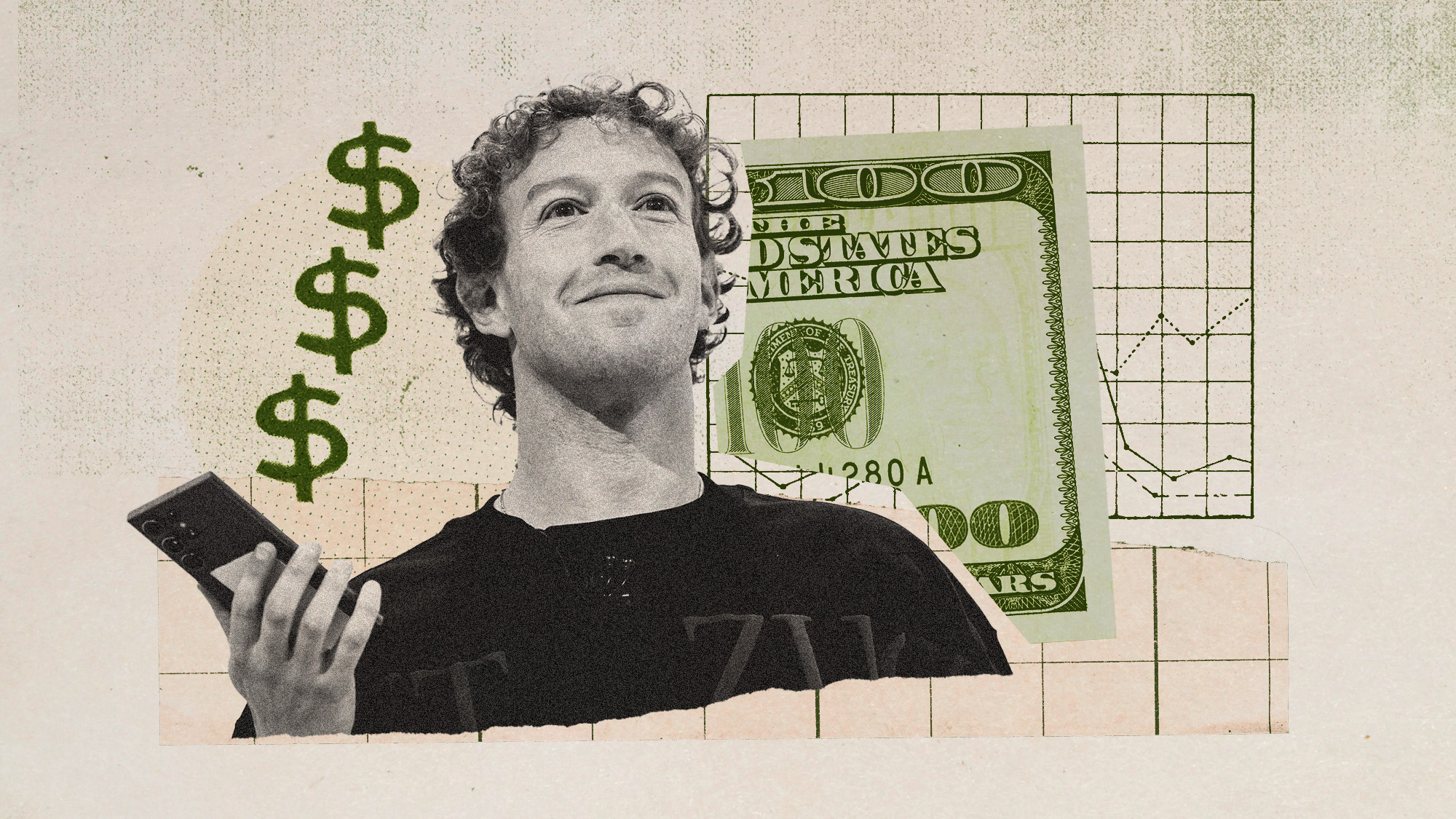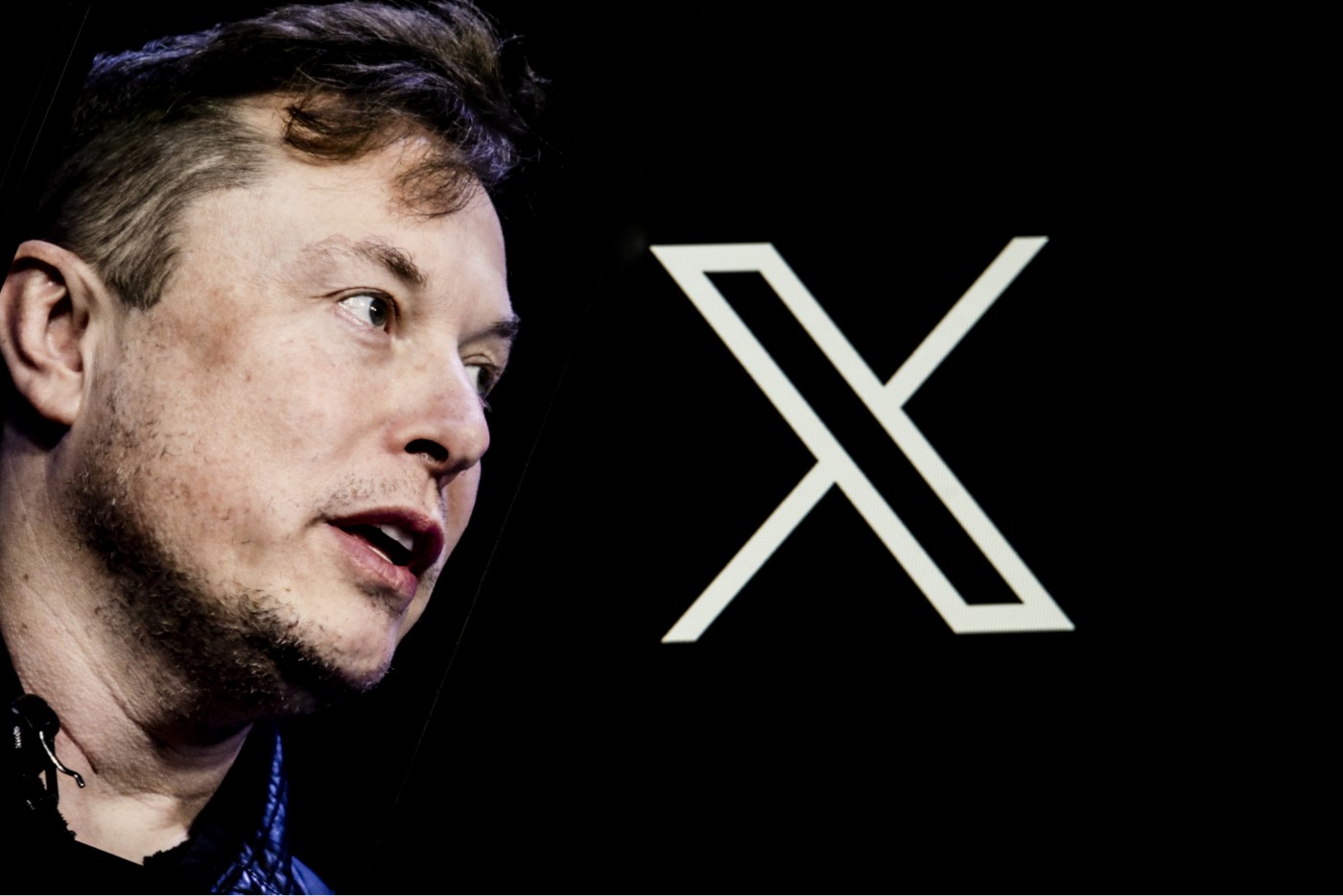Facebook F8 2018: what to expect at this year’s tech conference
Virtual reality headsets and upgraded features, such as greater user privacy, will take centre stage at tonight’s event in California

A free daily email with the biggest news stories of the day – and the best features from TheWeek.com
You are now subscribed
Your newsletter sign-up was successful
With the black cloud of the Cambridge Analytica scandal still hanging over its head, Facebook is expected to host a somewhat subdued tech conference at this evening’s annual F8 event in the US.
Company founder Mark Zuckerberg will head up the event, which kicks off at 6pm BST at the San Jose McEnery Convention Centre in California. Commentators are predicting that the tech tycoon will announce a host of new privacy and security-related features for the social media service.
In previous years, Zuckerberg has used the conference to publicise new products and ambitious research projects, says Wired.
The Week
Escape your echo chamber. Get the facts behind the news, plus analysis from multiple perspectives.

Sign up for The Week's Free Newsletters
From our morning news briefing to a weekly Good News Newsletter, get the best of The Week delivered directly to your inbox.
From our morning news briefing to a weekly Good News Newsletter, get the best of The Week delivered directly to your inbox.
But at this year’s event the tech entrepreneur looks set to move away from product reveals and instead focus on user privacy settings, the tech site says. This would be a response to the fallout caused by the sale of private Facebook user data to Cambridge Analytica.
But the company is still expected to announce news concerning its virtual reality (VR) products as well as significant upgrades to the social media site’s existing features.
Here’s what to expect from tonight’s event:
Damage limitation
A free daily email with the biggest news stories of the day – and the best features from TheWeek.com
In response to the Cambridge Analytica scandal – in which private user data was acquired using a quiz app hosted on Facebook – the social media giant is likely to announce updates to the service’s “privacy measures”, says Engadget. These could include additional privacy settings designed to give users a choice regarding the personal information the service can access.
Upping data security for its users would put Facebook in a better position for the EU’s forthcoming General Data Protection Rules (GDPR), the website says. The rules, which are set to be introduced on 25 May, will give people more control over their personal data.
In addition to increasing its data security, The Verge says that Facebook may also crack down on how third parties integrate the social network into their products.
Evidence of the tougher measures appears to have already affected third parties. Justin Krause, the founder of the tech start-up Pod, told the tech news site that Facebook cancelled Pod’s access to the social media service’s calendar feature without warning.
“They didn’t announce that they were revoking this data or send errors, they just started sending empty lists, silently”, he said.
Nobody knows why Facebook reportedly prevented Pod from accessing the calendar feature, but it might be linked to its forthcoming policy of limiting third party access to the private information of the social media site’s users.
Virtual and augmented reality projects
Aside from its focus on the security of user data, Facebook is expected to provide more details of its virtual reality (VR) products.
According to Digital Trends, Oculus, a VR firm owned by the social media site, is on course to appear at the event with a new budget headset called the Oculus Go.
Although Oculus announced an entry-level headset last October, the VR firm has yet to reveal the device’s release date. But Digital Trends says it’s likely to be disclosed at tonight’s conference.
Meanwhile, Mashable suggests that Facebook might increase its investment in augmented reality (AR), a piece of technology that layers computer graphics over real-world images.
Last year the social media site announced it was developing its Spaces AR social platform, says Mashable. The platform is designed to allow Facebook users worldwide to meet and talk in the virtual world. Facebook hasn’t spoken about the technology since then but more details are expected later today.
The future of video
Finally, Facebook could round off the event with a discussion of its growing investment in its video platform Watch.
The service allows users to stream video content, including original TV series and live events, through their Facebook profile for free, says Engadget.
Given that the social media site is “pouring money” into the streaming service, Engadget suggests that Facebook could reveal some significant changes to Watch this evening.
-
 Political cartoons for February 16
Political cartoons for February 16Cartoons Monday’s political cartoons include President's Day, a valentine from the Epstein files, and more
-
 Regent Hong Kong: a tranquil haven with a prime waterfront spot
Regent Hong Kong: a tranquil haven with a prime waterfront spotThe Week Recommends The trendy hotel recently underwent an extensive two-year revamp
-
 The problem with diagnosing profound autism
The problem with diagnosing profound autismThe Explainer Experts are reconsidering the idea of autism as a spectrum, which could impact diagnoses and policy making for the condition
-
 Is social media over?
Is social media over?Today’s Big Question We may look back on 2025 as the moment social media jumped the shark
-
 Social media: How 'content' replaced friendship
Social media: How 'content' replaced friendshipFeature Facebook has shifted from connecting with friends to competing with entertainment companies
-
 Meta on trial: What will become of Mark Zuckerberg's social media empire?
Meta on trial: What will become of Mark Zuckerberg's social media empire?Today's Big Question Despite the CEO's attempt to ingratiate himself with Trump, Meta is on trial, accused by the U.S. government of breaking antitrust law
-
 What does an ex-executive's new memoir reveal about Meta's free speech pivot?
What does an ex-executive's new memoir reveal about Meta's free speech pivot?Today's Big Question 'Careless People' says Facebook was ready to do China censorship
-
 What's Mark Zuckerberg's net worth?
What's Mark Zuckerberg's net worth?In Depth The Meta magnate's products are a part of billions of lives
-
 Is the AI bubble deflating?
Is the AI bubble deflating?Today's Big Question Growing skepticism and high costs prompt reconsideration
-
 How social media is limiting political content
How social media is limiting political contentThe Explainer Critics say Meta's 'extraordinary move' to have less politics in users' feeds could be 'actively muzzling civic action'
-
 Twitter's year of Elon Musk: what happens next?
Twitter's year of Elon Musk: what happens next?In the Spotlight 'Your platform is dying', says one commentator, but new CEO is aiming for profitability next year